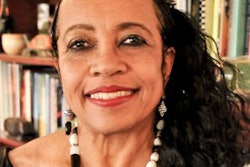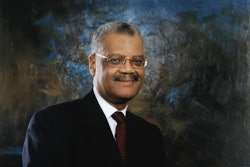
The Hutchins Center for African & African American Research at Harvard announced her passing, noting that "she is at peace" and that "in so many ways Marcy Morgan was the heart and soul of the Hutchins Center and AAAS communities here at Harvard."
Morgan's groundbreaking vision transformed how academia regards hip-hop. In 1996, she approached Dr. Henry Louis Gates Jr., then director of what would become the Hutchins Center, with a radical proposal: create an archive dedicated to hip-hop music and culture. Gates, who described himself as a "Motown man," initially dismissed hip-hop as a passing fad. But Morgan persisted.
"'This music,' she said looking at me like I was an idiot, 'was our youth vernacular language, manifesting itself in a completely new form of music, not only from coast to coast of the United States but spreading all around the world,'" Gates recalled at a symposium celebrating Morgan's career last year. She insisted it was "the lingua franca of American popular culture" and here to stay.
Morgan proved prophetic. The Hiphop Archive & Research Institute, which opened in 2002, became the world's first, largest, and most comprehensive repository documenting hip-hop's evolution. Her pioneering work inspired similar archives at Cornell University, University of Mass Boston, Georgia State University, and the College of William & Mary.
Earlier this month, Dr. Hopi Hoekstra, Dean of the Faculty of Arts & Sciences, approved renaming the archive as the Marcyliena H. Morgan Hip Hop Archive & Research Institute, ensuring her legacy endures at Harvard.
Morgan began collecting albums, magazines, and concert posters while teaching linguistics at UCLA in the 1990s. Her influential book, The Real Hiphop: Battling for Knowledge, Power, and Respect in the LA Underground, reflected her deep engagement with hip-hop communities and her commitment to understanding the genre on its own terms.
Among the archive's signature initiatives is the Classic Crates project, a curated collection of seminal hip-hop albums housed in Harvard's Eda Kuhn Loeb Music Library alongside works by Mozart, Beethoven, and Chopin. Morgan commissioned scholarly liner-note essays to explicate the intellectual and aesthetic achievements of each selection, treating hip-hop artists with the same critical rigor afforded to classical composers.
Morgan's influence extended beyond scholarship to mentorship and community-building. She convened panels and roundtables over decades, including a 2003 discussion on rapper Tupac Shakur's cultural contributions. Notably, she invited women, queer, and nontraditional scholars to these sessions long before it became standard practice—a level of inclusion that advanced scholarship on Black popular culture by broadening the base of leading hip-hop thinkers.
Dr. Imani Perry, the 2023 MacArthur Fellow and Harvard professor, suggested that Morgan's work provided crucial institutional support for hip-hop's broader cultural recognition. "I was thinking... I actually can't imagine Kendrick Lamar having received a Pulitzer without the imprimatur of the archive," Perry remarked, referring to the rapper's historic 2018 win.
Duke University professor Dr. Mark Anthony Neal invoked the metaphor of "Marcy's table" in describing Morgan's capacity to nurture and unite colleagues, students, and artists. Many remembered her Cambridge home, where academic discussions mingled with legendary fried chicken and coconut cake, as a space where intellectual community flourished.
Gates called Morgan the "scholar queen of hip-hop" and characterized her vision as nothing short of genius.
She served as a Harvard faculty member for more than 20 years before transitioning to emerita status. She is survived by her husband, Dr. Lawrence D. Bobo, the W.E.B. Du Bois Professor of the Social Sciences and former Dean of Social Science at Harvard.















